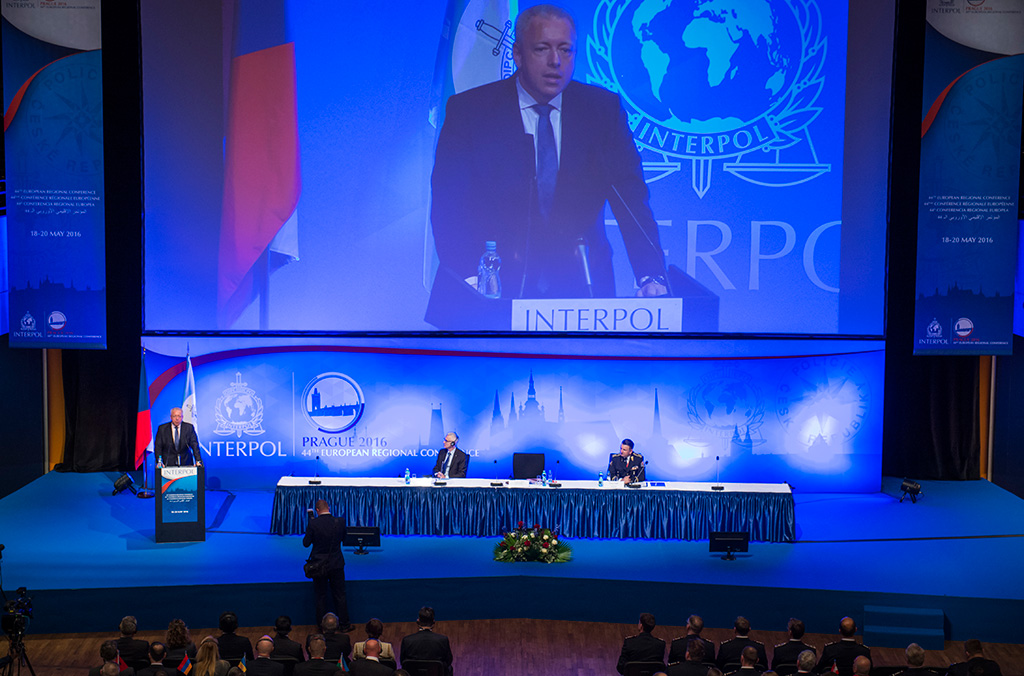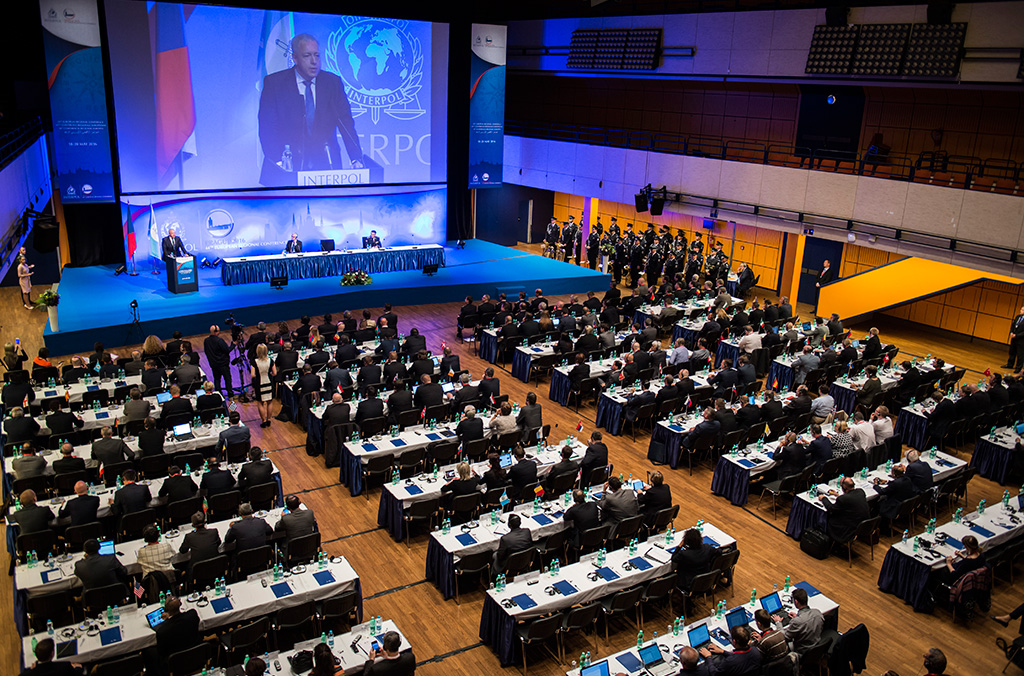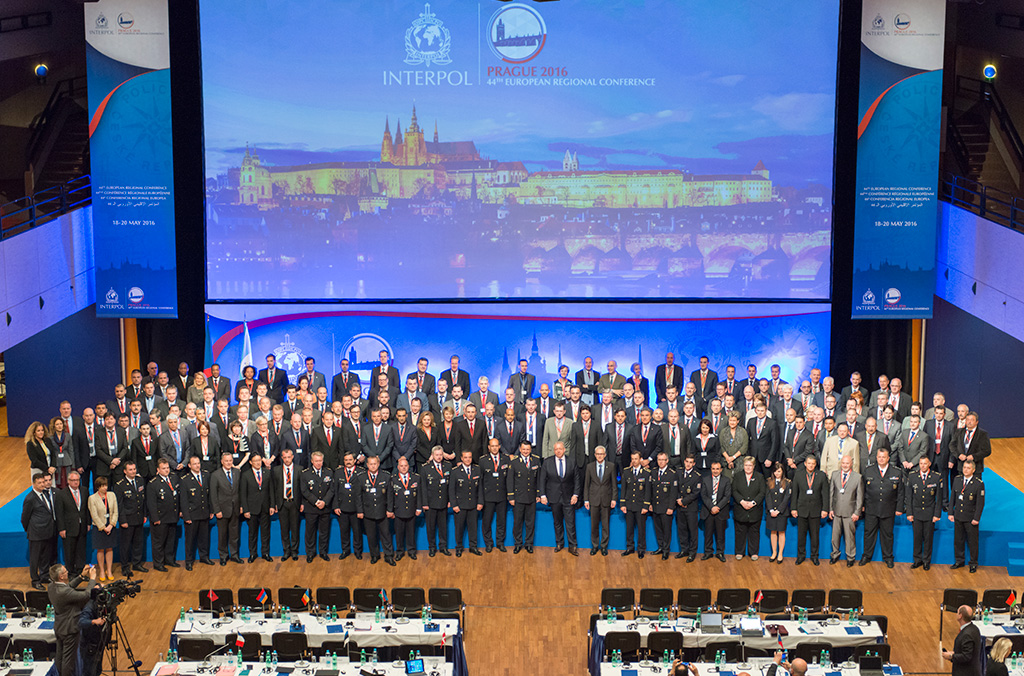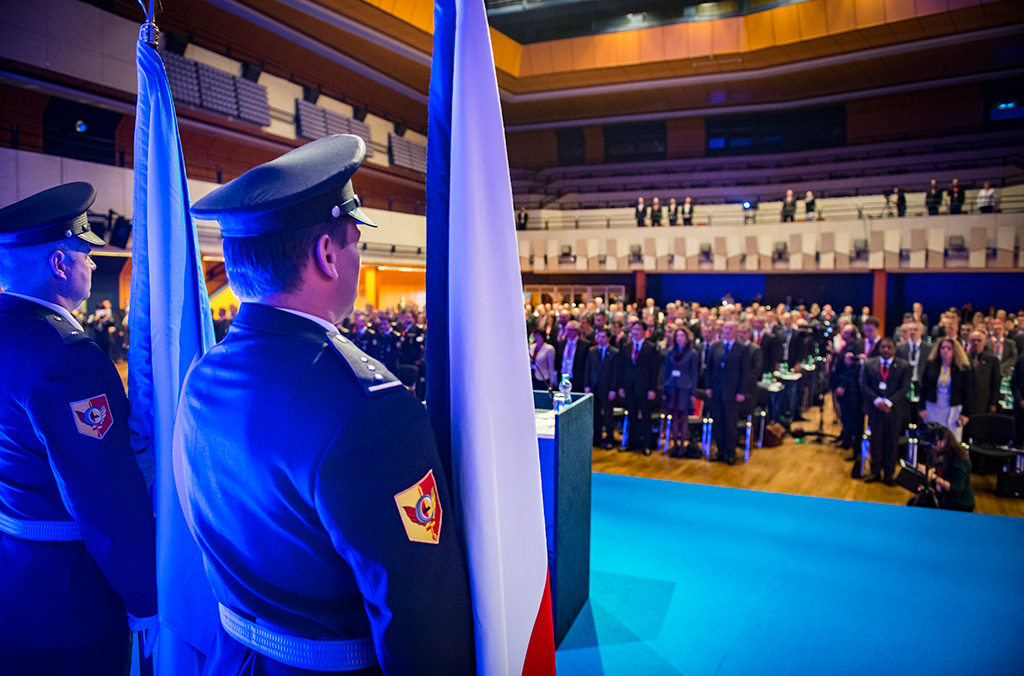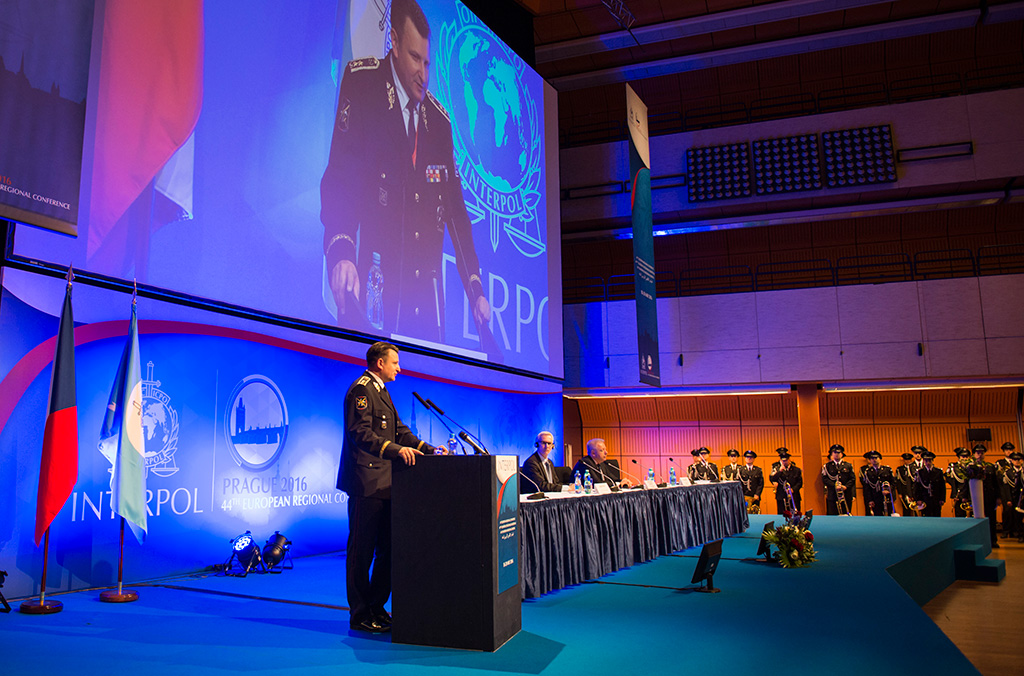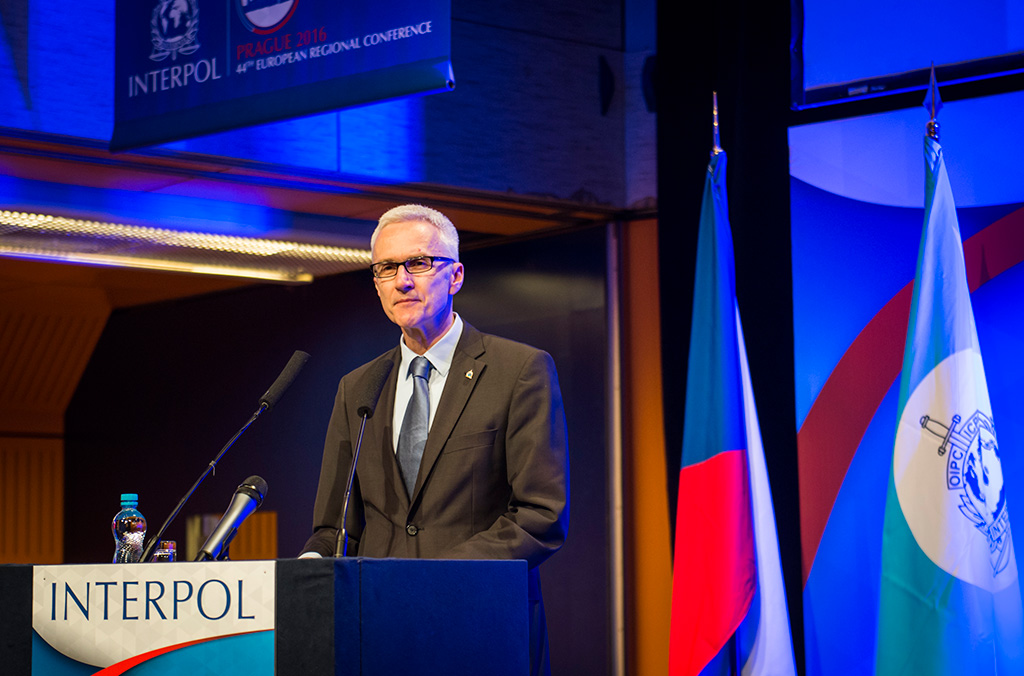PRAGUE, Czech Republic – Addressing the border security challenges posed by an unprecedented number of migrants travelling to Europe is a key issue for senior law enforcement officials gathered at the 44th INTERPOL European Regional Conference.
Following the publication of the joint Europol-INTERPOL Report on Migrant Smuggling Networks earlier this week, delegates at the conference will hear from countries including Austria, Germany, Slovenia and the Former Yugoslav Republic of Macedonia as well as from the United Nations High Commissioner for Refugees on their experiences in tackling this phenomenon.
With the report highlighting that border controls influence key routes for migrant smuggling, ensuring frontline officers have access to INTERPOL’s capabilities in order to access vital policing information, particularly within the Schengen area, is an essential part of enhancing national, regional and global security.
The importance of strong border security in tackling all types of crime was underscored by the recent INTERPOL-led Operation Balkan Trigger.
With guns increasingly becoming the weapon of choice for terrorist attacks in Europe, INTERPOL Secretary General Jürgen Stock said the seizure of 40 firearms, six kg of explosives, 11 hand grenades and 1,300 pieces of ammunition in just one 48-hour period, provided a ‘deeply worrying’ snapshot of the scale of illicit weapons trafficking from the Balkans region.
“Criminals and terrorists will exploit any loophole, real or perceived, to either smuggle illicit weapons or make money out of the desperation of migrants from around the world into Europe,” said Mr Stock.
“The borderless nature of Schengen means it is vital that police within the region and beyond communicate in real time and, more importantly, share information on routes and individuals so that patterns can be identified and interrupted.
“But this is not a regional issue; we are facing a new dimension in global security, one which can only be properly addressed through effective communication between all agencies around the world which are responsible for protecting their citizens,” concluded the Secretary General.
The 168 participants from 56 countries and 20 international organizations taking part in the INTERPOL European Regional Conference will look to adopt a set of measures to increase global information exchange on foreign terrorist fighters, extend the use of INTERPOL’s policing capabilities to critical border points in the region, and develop efforts to combat drug trafficking and the criminal networks involved.
“This conference is an opportunity for police throughout Europe to conduct meaningful discussions and deepen cooperation on measures to combat crime, terrorism and the criminals involved in the ongoing migration crisis,” said Major General Tomáš Tuhý, Chief of Police of the Czech Republic.
During the conference, the delegates will also hear about the changing nature of cybercrime and INTERPOL’s strategy to support member countries in combating it through specialized training activities.




